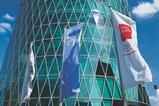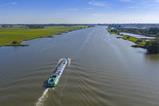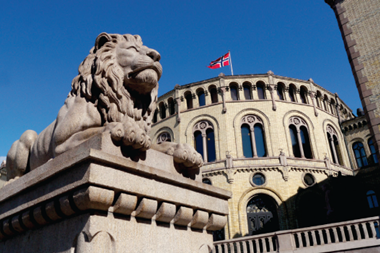Sweden’s AP7 and PFZW in the Netherlands are among new additions to the list of pension funds in Europe and beyond that have said they will shed exposure to Russian assets in response to President Vladimir Putin’s military onslaught in Ukraine.
AP7, the largest of Sweden’s national pension funds, said its decision to sell off all its shares in Russia-domiciled companies was based on its “government’s finding that the invasion is a violation of international law and the European security order”.
“The exclusion of Russian companies that has been decided on is not part of AP7’s normal blacklisting process,” said the SEK970bn (€91.6bn) fund in its announcement.
Richard Gröttheim, AP7’s chief executive officier, told IPE that the latest value the pension fund had for its Russian stocks was from Friday, when the assets comprised 0.13% of the total portfolio with a value of SEK1bn.
AP7’s Russian holdings are under management mandates at State Street and BlackRock, a spokesman for the fund said.
He said the two asset managers succeeded in selling some of the holdings before the Moscow stock exchange closed, but that most of them still remained.
In the Netherlands, PFZW, PME and Detailhandel have announced their intention to divest from all their Russian assets, following the example of ABP and Bouw, the first two Dutch pension funds that excluded Russia from their investment universe.
Of the three funds, €277bn healthcare scheme PFZW has by far the largest exposure to Russia, including an investment in local currency Russian government bonds worth €800m on 30 June 2021. “It is heartbreaking to see the amount of suffering the [Russian] violence is inflicting on the citizens of Ukraine. Our heart is with them,” PFZW said in a press release.
Technology industry fund PME drastically reduced its exposure to Russia last year as a result of its decision to divest from fossil fuel firms. On 1 March, the value of its Russian investments totalled around €16.5m, the fund said.
Pensioenfonds Detailhandel, the fund for the Dutch retail industry, also decided to sell its investments in Russia. These include stakes in several Russian government bonds, which were valued at more than €200m at the end of last year, and equity stakes in Russian companies including Gazprom (€6.5m), Lukoil (€8.4m) and Sberbank (€9m).
Who else?
Other European pension investors who have said they are planning divestment from Russian assets include Swiss public pension fund Publica; Norway’s sovereign wealth fund, Government Pension Fund Global in Norway; AkademikerPension in Denmark; and the Church Commissioners and the Church of England Pensions Board.
KBC in Belgium, KLP in Norway, and NEST and the Universities Superannuation Scheme in the UK have also made statements about their investments in relation to Putin’s war in Ukraine.
USS, the UK’s largest private pension scheme by way of assets, said that as at 1 March, around 0.5% of its circa £90bn portfolio was connected to Russia. Its CEO Simon Pilcher told BBC Radio 4 that “there is a clear financial, as well as a moral, case for divestment with respect to our Russian holdings”.
On its website, USS said it would be “looking to sell” its assets but that in the current environment little was trading. It said it had placed a moratorium on new long positions taken in all Russian assets and instructed managers to respect this where its holdings are indirect.
Moscow’s stock exchange was closed on 28 February and Russian debt, both hard currency and local currency, is largely shut down for trading.
‘Freezes only in reality’
Elsewhere in the UK, the local press is awash with headlines about local government pension schemes’ plans with regard to any Russian assets.
The largest such scheme, Greater Manchester Pension Fund (GMPF), has reportedly written to its 375,000 members to state that it has no direct Russian holdings due to environmental, social and governance risks associated with investing in Russian companies. ESG policies have also shielded Dutch pension funds from the financial fall-out of the war in Ukraine.
In its statement to members, GMPF reportedly said it had frozen all existing indirect holdings in Russia-domiciled investments, also noting that “some funds are using the word divest themselves but unless and until the current world markets and sanctions change they will only be able to freeze them”.
Today the Local Goverment Pension Scheme Advisory Board published a note drawing attention to a 2014 Law Commission report in case a decision to divest is not based on financial considerations.
That report concluded that trustees may take account of non-financial factors if two tests are met, namely that trustees have good reason to think scheme members would share the concern, and the decision should not involve a risk of significant financial detriment to the fund.
Read the digital edition of IPE’s latest magazine























